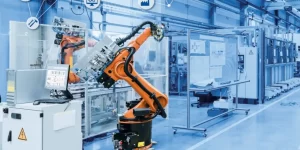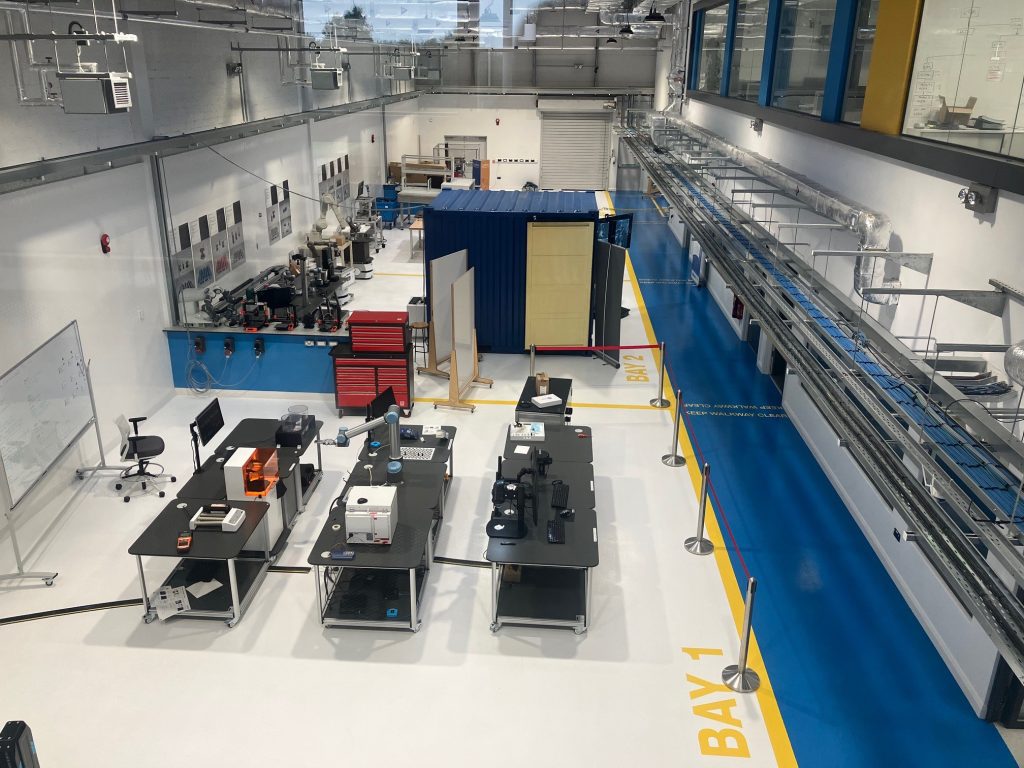In a series of blogs, CONFIRM, the SFI funded Centre for Smart Manufacturing Research will talk about how it visualises the future of Smart Manufacturing and will address the emerging Grand Challenges in this area. CONFIRM will also talk about the aspects of Smart Manufacturing they will focus on by means of newly devised research themes that will govern the Centre’s activities in Phase 2 of its research programme (2023-2029).
In our final blog, we go into more detail on addressing the identified ‘Themes’ that will feed into the already discussed ‘Missions’

The mission orientated approach is aligned to CONFIRM’s resilient manufacturing vision and is underpinned by the CONFIRM Phase 2 research programme, comprising five core research themes. From the five missions CONFIRM has identified, it has developed five research themes that feed into those missions. These themes form the basis of research programmes that will underpin and achieve the mission objectives.
- Cognitive Production Systems
- This research theme focuses on the challenge of better understanding manufacturing processes in real-time, using sensor data that drives advanced models (e.g., closed-form, statistical, numerical, data, AI, Machine/deep learning) to optimise processes from a productivity and sustainability point of view. Investigation of cognitive production systems starts at the machine-product interface, and then works up through the production system to the full factory, and then into the supply chain. We consider cognition in a full factory and supply chain context, where spatial awareness of humans and machines is required to advance the creation of safe, modular, flexible, and easily reconfigurable future factories.
- Distributed Supply Chain and Manufacturing Systems
- This research is critical to develop future factories and supply chains, where different phases of production will no longer be constrained to one factory or location, but federated so that products can, for example, be finished locally for a local market. Key research topics include future wireless communication and sensing systems between autonomous and reconfigurable manufacturing systems and machines/products, connectivity in inter- and intra-factory contexts and across supply chains, platforms for re-configurable manufacturing processes and supply chains, data models to enable highly distributed manufacturing, and tools to enable analysis and design of future distributed manufacturing and supply chain processes. This will influence the behaviour of transport, logistics, finance, and consumers and will enable new manufacturing business models and platforms to emerge.
- Secure Factory and Supply Chain Systems
- This research theme is critical to enable manufacturing to become more digitalised, sustainable, secure, and resilient, and to compete successfully in an increasingly digitalised world. For the manufacturing sector, there are three interdependent layers that must be protected from cyber threats: (i) the operational technology layer (i.e. the physical machines, products and digital assets in the factory); (ii) the information technology (IT) layer (i.e. all the IT systems that control the factory, including cloud services); and (iii) the supply chain layer (i.e. all the interoperable systems that enable a smoothly functioning manufacturing supply chain base and economy), emphasising that digitalisation is a pre-requisite for achieving secure supply chains.
- Human-Machine Collaborative Manufacturing Systems
- Human-machine collaborative manufacturing systems are critical to the future of work, where we see major research questions emerging with a view to enhancing the attractiveness of manufacturing occupations, as well as promoting the performance, safety, and productivity of workers, through AI and robotic assistance, haptics and AR/VR/XR systems. CONFIRM’s philosophy here is to enhance human performance, rather than replace workers, and so a key research focus will be on user experience and technology adoption from both a technological and human factor viewpoint.
- Circular Manufacturing and Supply Chain Systems
- Research into circularity is critical to realise a sustainable economy, society, and environment. Key research questions concern regenerative systems, energy harvesting in production systems, and product design for life-cycle analysis. Supply chain research challenges include product circularity, re-manufacturing, re-use and recycling, end-of-life protocols, product life-cycle health, and active and passive product identification (AKA product passporting).

Each research theme will involve conducting fundamental platform, industry targeted, and education and public engagement (EPE) research projects that address the Grand Challenges via their contributions to their associated missions. These projects include interdisciplinary collaboration spanning across the research themes.







